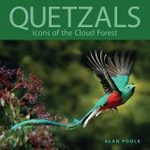About this product
A poster depicting four black-capped lories (Loruis lory jobiensis).
Customer Reviews
Biography
Jim Hayward was born in Oxford in 1943, has lived in Carterton all his life and has been a bird breeder since childhood. As a writer and artist, he has produced innumerable articles since the late 'sixties, and provided illustrations and photographs for well known publications such as Cage and Aviary Birds Magazine (being the parrot expert from 1987 to 1996), Birdkeeper Magazine (he was the magazine's parrot expert from its beginnings until 1994), Parrots Magazine (for which he was one of the experts at its inception) and the magazine of the Parrot Society (UK) of which he was a founder member. He has also provided articles, photographs and illustrations for avicultural magazines in South Africa, Canada, Australia and USA, as well as drawing up and illustrating show standards for the Love Bird Society (L.B.S, USA).
Jim’s painting and drawing skills developed from his original work as a self taught, self employed sign-writer and gilder from the age of fifteen, and from working as a staff artist from seventeen years old for the USAF at Brize Norton air base at the end of the nineteen-fifties and beginning of the ‘sixties.
As well as publishing prints of his own paintings of Parrots, he wrote Lovebirds & their Colour Mutations (1979 - Blandford Press), and has written, illustrated and published: Notes on Keeping Lories (1972), Parrot Breeder Magazine from 1984 to1988, The Manual of Colour Breeding (1992), The Rosellas (1995), African Poicephalus Parrots (1997 - Poster and Booklet), Indian Ringneck Parrakeet Supplement to the Manual of Colour Breeding (1997), Lineolated Parrakeet Supplement to the Manual of Colour Breeding (1998) and The Bumper Cockatiel Book of Colour Breeding Programmes (1999) amongst various others. Jim Hayward's expertise in the practical use of genetics grew from a lifetime's interest and study in the varieties which occur within wild and domesticated species of living creatures and wild and cultured plants, but especially cage and aviary birds. The original concept of his work on colour varieties in birds was enlarged, refined and finally culminated with Genetics Wizard (2000); the two parts of this work make his knowledge of genetics available for the greatly wider use of breeders of inheritable varieties, traits, or characteristics in all living things – whether of the Animal Kingdom or the Plant Kingdom.
For more than a quarter of a century (from 1967 onwards), much of Jim and Pearl Hayward's lives (and the life of their son, also Jim) was taken up almost entirely with attending to a large breeding stock of birds which, at one time, filled the space provided by two hundred flights in blocks of various sized aviaries. Numerous species of African, Australian, Asiatic, South American, Indonesian and Polynesian parrots, both common and endangered – as well as colour varieties of parrakeets and lovebirds – have been bred at Carterton Breeding Aviaries over the years. Many of these birds – originating from the partnership begun in 1967 with his wife Pearl (who is also a life long bird breeder) – were sent to specialist aviculturists all over the world: South Africa, USA, Australia, various countries in Europe, and the Middle East and Far East. For the present time, the aviaries and stocks of birds have been reduced so as to specialise in a single species, the Amboina Island King Parrot (Alisterus amboinensis) which has been represented at the aviaries since 1969 and bred carefully and consistently from the same blood lines down many generations to the present day.
Jim has had a lifetime experience in keeping, breeding, importing and exporting many kinds of psittacine birds and is an acknowledged authority on colour varieties of birds. He has presented papers on psittacine birds, mutations and the genetics of breeding colour varieties for the American Federation of Aviculture Convention in Washington DC (1982) and the First International Australian Federation of Aviculture Convention in Gosford, New South Wales (1987), as well as venues in England ranging from small club rooms to the lecture theatre at London Zoo. He was honorary president of the Lovebird Society (1990) and the Society for Conservation in Aviculture.




























